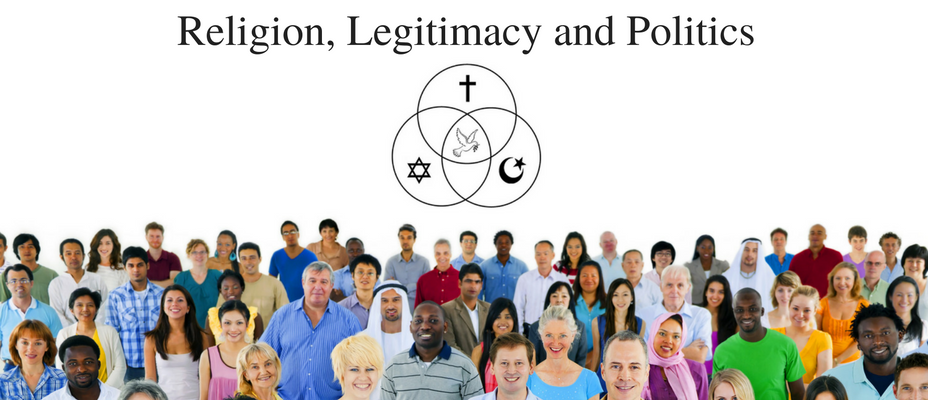By Rudy Barnes, Jr.
Disagreement in partisan politics is normal, but America’s two parties are so polarized now that civil conflict is likely without partisan reconciliation. In 1860 partisan differences over slavery led to secession and Civil War. Partisan conflict once again threatens the fabric of American democracy. Common ground must be found to avoid another civil conflict.
The moral teachings of Jesus summarized in the greatest commandment to love God and our neighbors as we love ourselves is a universal standard for reconciliation. Reconciliation doesn’t require unanimity in political views, only finding consensus on critical issues. To be reconciled, Americans must first accept their political adversaries as their neighbors.
For Americans to hold the fabric of their diverse democracy together, they must accept political differences and find consensus on providing for the common good. If they don’t, they are destined to see their democracy once again dissolve in civil conflict. Slavery is no longer an issue, but racism remains pervasive and continues to corrupt and polarize American politics.
The big question for America today is whether a majority of Americans can rise above their partisan loyalties and agree on the common good. If not, unless one of America’s two parties becomes more open to independents or a viable third party is created, America’s polarized partisan duopoly will become even more extremist and evolve into civil conflict.
Economics is a major factor. A strong middle class is essential to political stability in America, and vast disparities in wealth create instability. Progressive taxes and government regulation are necessary to prevent unacceptable disparities in wealth. While Jesus favored the needs of the poor over the wealthy, he never addressed the common good in a democracy.
President Biden’s executive order to forgive billions of dollars of debt for millions of students has created a politically volatile constitutional issue just before the midterm elections. Article I, Section 8, limits such action to a Congress that’s too polarized to act on such a divisive issue, and litigation will likely exacerbate polarized partisan politics to dangerous levels.
Both parties seem to have accepted a partisan gridlock that precludes providing for the common good, and that will likely lead to civil conflict if not resolved with partisan reconciliation. It took a Civil War and the civil rights revolution of the 1960s to fulfill the ideal of the Declaration of Independence that All Men are created equal and endowed by their Creator with certain inalienable Rights, that among these are Life, Liberty and the Pursuit of Happiness.
America’s politics seem regressive on that lofty ideal. America First with its racist baggage, precludes The American Dream that’s compatible with providing for the common good. A new Gallup poll shows that 43% of all adults think that a civil war is at least somewhat likely in the coming decade. That’s reason to worry about America’s future.
Notes:
On the American Dream? America First eclipses it. A durable code in the nation’s politics emphasizes the limits of unity and inclusion [and providing for the common good] See https://www.washingtonpost.com/outlook/2022/09/09/america-first-american-dream-trumpism/?utm.
Jason Willick attributes partisan tribalism to opposition to whatever the other party asserts. “We are so ideologically invested in the purity of our [concept of] democracy that much of what the other party does seems like a threat to democracy.” See
https://www.washingtonpost.com/opinions/2022/09/11/american-democracy-threat-from-within/?utm.
A recent Gallup poll shows that 43% of all adults, 40% of Democrats, and 54% of Republicans think that a civil war is at least somewhat likely. That’s good reason to be worried. See https://www.statista.com/chart/28200/is-a-us-civil-war-likely/.
Maya MacGuineas, president of the nonpartisan Committee for a Responsible Federal Budget, has asserted The White House is wrong, Biden is no steward of fiscal responsibility. “The White House has been trying to paint President Biden as the champion of prudent economic stewardship. Biden’s ‘record on fiscal responsibility is second to none,’ it asserts. As temporary covid measures end — and record-high deficits predictably decline — the administration is congratulating itself for that supposed achievement. But the administration’s record is, sadly, the opposite of what it argues. Since entering office, the president has approved policies adding $4.8 trillion to the deficit over the next decade. This is an extraordinary sum, which makes it all the more astonishing that the administration would try to pull off this claim. If ever there were a moment for responsible budgeting, this is it. The debt is at near-record levels. Inflation is soaring, in part because of excessive government spending. The White House added to this fiscal irresponsibility by initiating an additional $1.1 trillion of borrowing through the aggressive use of executive actions, including his most recent unpaid-for student debt relief plan. The debt relief alone will cost a half a trillion dollars by my organization’s estimate. Others put the price tag even higher. All this new borrowing is adding $700 billion more of new interest costs over a decade at a time when interest payments are already the fastest-growing part of the budget.” See https://www.washingtonpost.com/opinions/2022/09/13/biden-debt-deficits-fiscal-responsibility/?utm.

No comments:
Post a Comment